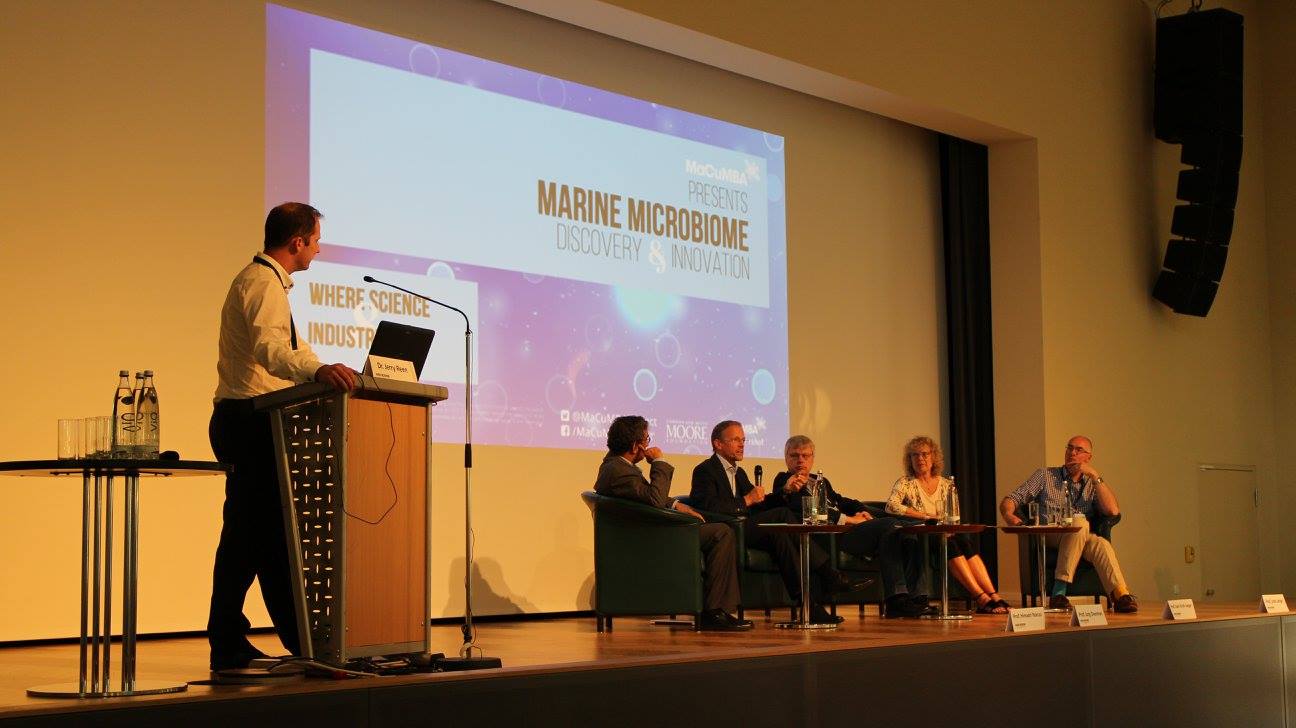In This Section
- Home
- Study Microbiology at UCC
- Postgraduate Research Programmes
- About
- Research
- People
- Academic Staff
- David Clarke, Head of School
- Hilary Browne
- Marcus Claesson
- Sinéad Corr
- Alan Dobson
- Gerald F. Fitzgerald
- Cormac Gahan
- Colin Hill
- John MacSharry
- Jennifer Mahony
- Ruth Massey
- John P. Morrissey
- Fergal O'Gara
- Niall O'Leary
- Liam O'Mahony
- Paul O'Toole
- Michael B. Prentice
- Gaurav Rajauria
- F. Jerry Reen
- Paul Ross
- Francisco Vitor Santos da Silva
- Martina Scallan
- Pauline Scanlan
- Andrey Shkoporov
- Douwe van Sinderen
- Jens Walter
- Technical Staff
- Administrative Staff
- Academic Staff
- Staff Resources
- Postgrad and Post Doc Committees
- School Seminars
- News/Newsletters
- Athena SWAN
- Current Vacancies
- Contact Us
Navigating the Nagoya Protocol for Marine BioDiscovery

The first Marine Microbiome conference took place in Berlin, Germany from June 27-30th. Under the title of ‘Discovery and Innovation’, the industry and open science meetings brought together stakeholders from academia and industry to discuss emerging needs and avenues for future commercialisation in Marine BioDiscovery.
As part of the conference programme, an expert panel discussion moderated by Dr. Jerry Reen from the BIOMERIT Research Centre (BRC) in the School of Microbiology, dealt with the practicalities of implementing the Nagoya protocol. Titled “Future use of Marine Microbial Diversity - Challenges and Solutions”, the panel debated the legal restrictions which scientists increasingly face in the course of their work investigating marine microorganisms, and how these newly implemented legal provisions under Nagoya may hinder timely developments and innovation in the field of BioDiscovery. The panel discussion is available for viewing online at http://www.macumbaproject.eu/.
Dr. Reen also presented a talk “Quorum Sense and Quenchability” at the conference where he described developments in the use of cell-cell communication signals for improved culturability of marine organisms, activation of silent or ‘cryptic’ biosynthetic gene clusters and the modulation of virulence behaviour in clinically relevant pathogens. Part of an ongoing research programme in the BRC with Prof. Fergal O’Gara, some of these advances have recently been published in Antimicrobial Agents and Chemotherapy (DOI: 10.1128/AAC.00190-16) and Applied Microbiology and Biotechnology (DOI: 10.1007/s00253-015-6436-1).
School of Microbiology
Scoil na Micribhitheolaíochta
Contact us
Microbiology Office, Room FSB452, 4th Floor Food Science & Technology Building, University College Cork, Cork T12 Y337
